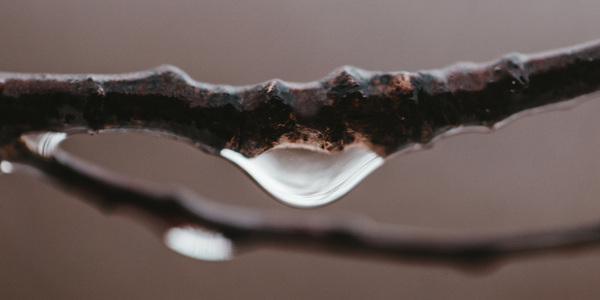Scientists have discovered that PFAS has exceeded the safety levels in rainwater, making it unsafe for consumption.
PFAS (per-and polyfluorinated alkyl substances) are human-made chemicals that accumulate in both living species and physical surroundings. They are also known as 'forever chemicals' because the environment cannot break them down. These toxic chemicals are linked to detrimental health risks, including cancer and fertility issues, and more.
Unfortunately, PFAS invades our daily lives in more ways than we realize. These synthetic substances are frequently used in non-stick cookware (Teflon pans), and stain-resistant and waterproof coatings. They are also utilized in food packaging (wraps), cosmetics, and electronics.
And now, the rainfall!
A new study published by the American Chemical Society reveals traces of PFAS in the rainfalls, as far as Antarctica and the Tibetan Plateau. The researchers from Stockholm University studied samples of rain, soil, and surface water to measure the levels of four chemicals based on US contamination guidelines. The samples showed traces of all four, resulting in marking rainwater as 'unsafe to drink.' According to researchers, rainwater consumption is to be avoided globally as there is no region's precipitation that is spared by the forever chemicals.
"Based on the latest US guidelines for PFOA in drinking water, rainwater everywhere would be judged unsafe to drink," said Ian Cousins to Euronews. Cousins is a professor at the Department of Environmental Science, Stockholm University, and the study's lead author.
Researchers are more concerned with PFAS' permanence over lethality. Even after regulated usage by industrial companies over the last 20 years, there is no indication of decreased PFAS levels in the atmosphere.
While new methods to eliminate PFAS from the environment are in progress, experts have not yet discovered a way to fully disintegrate the chemicals once they have been removed. In the meantime, they are hopeful that businesses will expeditiously stop using "forever chemicals" for good.
The study was published in the journal Environmental Science & Technology titled Outside the Safe Operating Space of a New Planetary Boundary for Per- and Polyfluoroalkyl Substances (PFAS).
Related blog:
Extreme Heat is Uncovering Lost Villages
Single-use Plastics to be Banned in Canada under new Regulations





